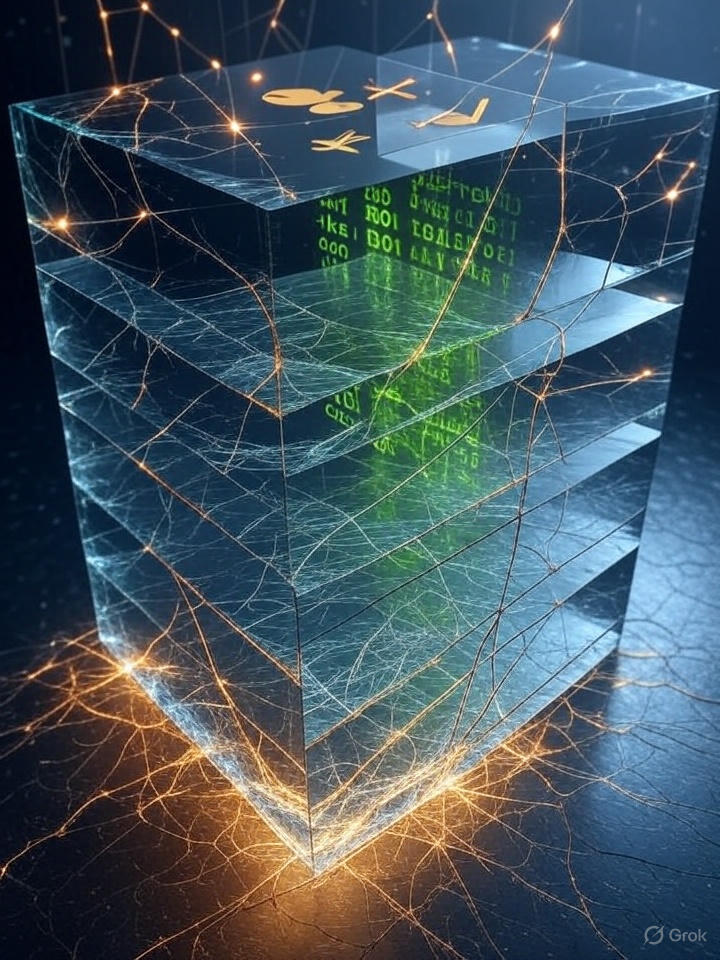"No Need for Trust!" (Trustless!). A slogan that echoes like a hymn of liberation in the blockchain world, a promise of salvation from the tyranny of intermediaries, banks, and governments. But, wait a moment! Isn’t there, behind this crystalline transparency, these strict algorithms, and these stacked blocks, **humans**?! Yes, humans hold the keys to this decentralized kingdom. So let’s dig together into the hidden layers of trust, on a journey to uncover: **Who do we really trust in this "trustless" utopia?**
**Layer One: Trust in Digital Geology - "Miners" and Proof of Work:**
* **Promise:** Trust in mathematics and physics! Whoever finds the solution first (the hash) earns the right to mint the block. Computational power is the judge.
* **Revelation:** But... what if the miners unite as one block? Here emerges the terrifying "Herd Trust." **We trust that no one will control 51% of the hash power!** We trust that their greed will keep them competitive, not colluding. We trust that the high cost of electricity will prevent tyranny. Isn't this a tremendous trust in an incentive system that could turn? Imagine if a single "mining army" decides to flip the table! Do we trust in the dispersion of power forever?
**Layer Two: Trust in the Hidden Constitution - "Developers" and Code Legitimacy:**
* **Promise:** Code is law! Rules that know no favoritism, enforced automatically.
* **Revelation:** But... **Who wrote this ironclad constitution?** The developers! Here lies another blind trust: **We trust that their minds are noble, their code is sound, and their intentions are unselfish.** We trust they will not plant a "backdoor," or make a grave error (like the DAO Hack that shook Ethereum). We trust that their updates (Forks) will be in the network's interest, not serving an agenda. Isn’t this an enormous authority, and absolute trust, in a group whose faces we may not even know?
**Layer Three: Trust in Blind Market - "Users" and Consensus:**
* **Promise:** Decentralized Consensus! No president, the majority decides the network's path.
* **Revelation:** But... **Who forms this majority?** The users (often the token holders)! Here we rely on "Market Trust": **We trust that the interests of the majority will align with the health and integrity of the network.** We trust that they will not vote for changes that destroy the value of what they own. We trust that they will distinguish between beneficial development and malicious attack. But, what if massive "Whales" control the voting? What if the community splits (as in Bitcoin Cash)? Isn't this a trust in the wisdom of the crowd, which can be deceived or distracted?
**The Paradoxical Conclusion: Trust Has Not Died... It Has Multiplied and Disguised!**
"No Need for Trust" is not a denial of trust, but a **radical shift in its direction and nature.** We no longer trust a single bank or a single government, but **we distribute our trust - whether willingly or unwillingly - across sometimes overlapping and fragile layers:**
1. **Trust in Decentralization of Power** (No one should dominate).
2. **Trust in the Integrity and Genius of the Makers** (the developers).
3. **Trust in the Wisdom and Goodwill of the Community** (the users/holders).
4. **Final, Fundamental Trust: In Mathematics Itself** (That encryption will not be broken, and that 1+1 will remain 2).
Blockchain does not eliminate trust; it **re-engineers it** into a complex network of economic incentives, enforced transparency, community oversight, and a wager on self-rationality. It is a "Republic of Distributed Trust," where trust has not been abolished, but dispersed and has become a collective wager against complete collusion.
The question remains: Does this distribution of trust make the system stronger or create new, hidden, and multiple vulnerabilities? The answer lies in the community's ongoing vigilance. And in the trust we place in our ability not to trust blindly, even in a system described as "trustless" where the revolution continues, and trust. A game of perpetual renewal.


